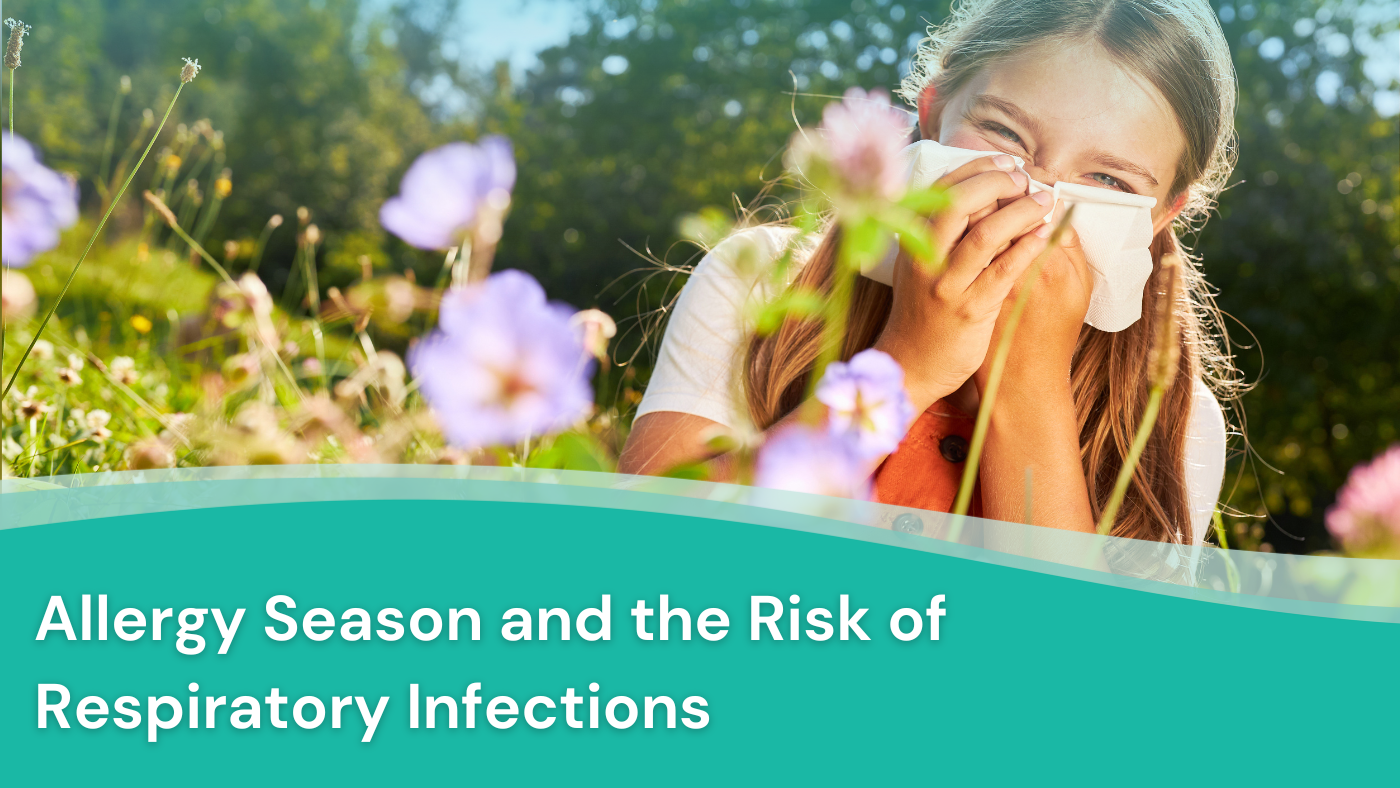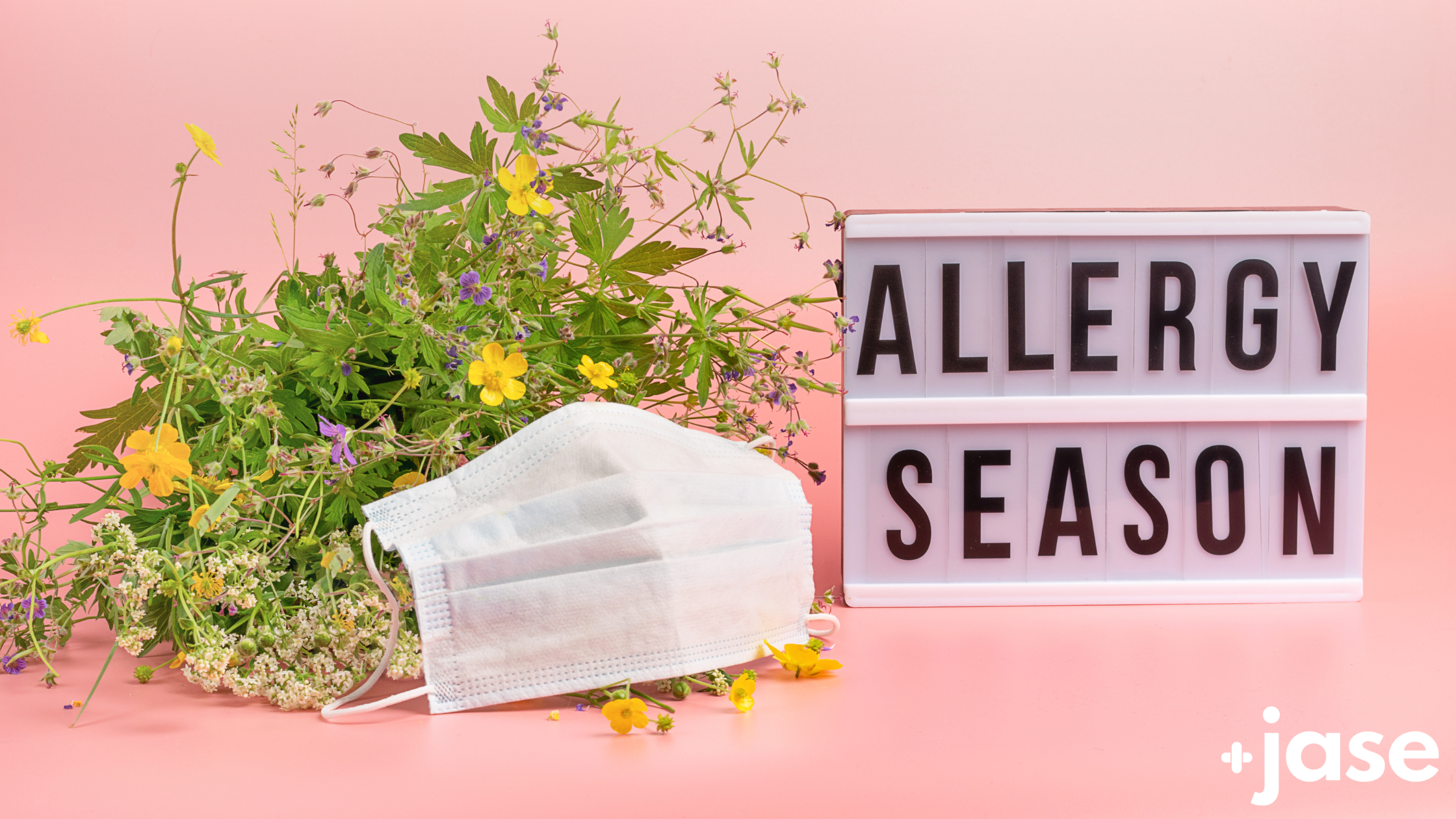Don’t let allergies turn into something more serious!
It’s that time of year. The weather is lovely, the flowers are in bloom, the birds are chirping, and the tissues are flying? Summer’s around the corner, and Spring is certainly in the air, but so are the allergens.
With all the increased activity in springtime, both from us and in nature, the pollen, mold, dust, dander, and dirt all get stirred up too. This not only exacerbates allergies but can lead to respiratory infections too – unless we take precautions.
So let’s look at why springtime allergies can be a double whammy for your respiratory health.
The Allergy Season
Spring through Fall are notorious for their higher pollen counts, which can trigger allergic reactions in susceptible individuals. Common symptoms include sneezing, runny or stuffy nose, itchy eyes, and coughing. These symptoms occur when the immune system overreacts to the presence of pollen, releasing chemicals like histamine that cause inflammation and irritation.
| According to the CDC 25.7% of adults, and 18.9% of children in the U.S. suffer from seasonal allergies. |
The Link to Respiratory Infections:
One of the lesser-known effects of springtime allergies is their potential to increase the risk of respiratory infections. The inflammation and irritation caused by allergic reactions can weaken the immune system’s ability to defend against viruses and bacteria, making individuals more susceptible to infections like the common cold and flu.
Drainage Difficulties:
Another way allergies put you at risk is by creating drainage issues. The constant runny nose and congestion that plague allergy sufferers are your body’s attempt to flush out irritants. However, this constant flow can actually become counterproductive. Mucus can become thick and sticky, making it harder to clear out and potentially trapping pathogens that could lead to infection.
What can you do to combat allergies and the risk of a respiratory infection?
-
- Know Your Triggers: Pollen counts are a big culprit, but mold, dust mites, and even pet dander can trigger allergy symptoms. Identifying your triggers allows you to take specific steps to avoid them. Check the daily pollen count before you decide to spend time outdoors.
- Medications are Your Friend: Over-the-counter antihistamines and nasal corticosteroids can significantly reduce allergy symptoms and inflammation. Consult your doctor about the best option for you. And if a respiratory infection does develop then there are medications to treat and shorten those infections.
- Be Proactive: Start taking allergy medication before symptoms even appear. This helps prevent the inflammation that makes you more susceptible to infection.
- Minimize Exposure: Stay indoors on high pollen count days, keep windows closed, and shower after spending time outdoors.
- Boost Your Defenses: Eat a healthy diet, get enough sleep, and manage stress – all these factors contribute to a strong immune system
If you have severe allergies, a higher risk of respiratory infections, or even a weakened immune system, consider having medications on hand for both mitigating allergic reactions and treating respiratory infections.
Amoxicillin, Doxycycline, and Azithromycin are some of the most common medication for treating respiratory infections. And all 3 are included in every standard Jase Case.
So get yourself a Jase Case for some peace of mind this allergy season!
Lifesaving Medications
Recent Posts
Keeping you informed and safe.
Medical Readiness: What Really Kills First
When Disaster Strikes, It’s Not Hunger or Thirst That Takes the First Lives In every disaster zone, from hurricanes in the Caribbean to war zones in Ukraine, the pattern is the same. People worry about food and water, but it’s infection that kills first. A small wound...
Exploring Dr. William Makis’ Hybrid Orthomolecular Cancer Protocol: Focus on Ivermectin and Mebendazole/Fenbendazole
Exploring Dr. William Makis’ Hybrid Orthomolecular Cancer Protocol: Focus on Ivermectin and Mebendazole/Fenbendazole *Disclaimer: This article is for educational purposes and does not constitute medical advice. Always seek professional guidance.* In the evolving...
Be Prepared for Life’s Unexpected Moments
3 Reasons EVERYONE should have emergency medications avaiable. It's all about access—access to medications and care when you need it most. And when things happen outside of your control that access can disappear.Below are 3 examples of how easily this access can be...
Youth Preparedness: Teaching, Building, and Coping with Disasters
Educating and preparing your children ahead of time means fewer surprises in the event of an emergency.Growing Up Prepared: Empowering Youth in Disaster Preparedness As we observe National Preparedness Month, it's crucial to remember that disasters can strike at any...







